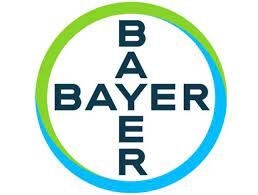In the wake of the rejection by United States District Judge Vincent Chhabria of Bayer’s proposed $2 billion settlement of claims against its signature product Roundup, Bayer announced several steps it will take to mitigate future risk. While the company hinted it may pull glyphosate as a Roundup ingredient from its lawn care division, it said the regular version would continue to be available to professional and agricultural users.
Glyphosate is the active ingredient in Roundup and the one that has been alleged to cause Non-Hodgkin’s Lymphoma in three lawsuits that resulted in multi-million-dollar judgments against Bayer. Bayer acquired Roundup when it bought Monsanto in 2017. It has been struggling ever since to get out from under Roundup liability.
Elizabeth Cabraser, a member of the legal team that structured the settlement plan, said team members were “disappointed” by the ruling and “continue to believe that a multi-billion-dollar class settlement that includes free legal service and substantial compensation to claimants, NHL diagnostic assistance, research into NHL treatment and Roundup label reform to inform users and the public on all the science regarding a Roundup-NHL link, would provide tremendous financial, health and safety benefits for class members.”
Chhabria’s ruling came May 26, following critical remarks he had made previously. Bayer’s proposal divides potential litigants into two groups: those who had been exposed to Roundup and diagnosed with NHL but have not retained a lawyer or brought suit, and those who have not been diagnosed. The agreement didn’t cover those whose cases were already in progress.
Chhabria said the proposal was “unreasonable” for people in the second group because it requires them to give up their future right to sue for punitive damages, although they could still have sued for compensatory damages.
The benefit offered of a free four-year medical monitoring program for NHL offered by the Bayer proposal didn’t amount to much, according to Chhabria, because NHL has a latency period of between 10 and 15 years. The proposed compensation fund for those positively diagnosed also suffered from “glaring flaws,” according to Chhabria, because it only would have lasted for four years and could possibly have been exhausted by existing claims against it.
Chhabria also criticized a key provision that is important for Bayer: setting up a scientific panel whose findings about glyphosate would bind all parties. Bayer continues to defend the safety of glyphosate and notes that the vast majority of studies of the chemical have found it to be safe, but Chhabria said that Bayer had lost “the battle of the experts” in three trials and worried that such a panel could reduce future plaintiffs’ settlement values.
Finally, Chhabria criticized Bayer’s plans for notifying class members. But while vacating the proposal, he left the door open for Bayer to present a new settlement proposal.
Adding to ongoing lawsuits and a drumbeat of bad publicity, activist groups are pressuring retailers to stop selling Roundup. A blog for Moms Across America reported that big-box retailer Costco has agreed to do so, although Costco does not officially announce which of its products it is discontinuing.
In its May 27 response to Chhabria’s denial of its settlement plan, Bayer announced a five-point program, which includes the following:
1. Bayer will create and promote a new website with scientific studies relevant to Roundup’s safety, and a request that the Environmental Protection Agency approve corresponding language on Roundup labels.
2. “While the company will remain in the residential lawn and garden market, it will immediately engage with partners to discuss the future of glyphosate-based products in the U.S. residential market, as the overwhelming majority of claimants in the Roundup litigation allege that they used Roundup lawn and garden products. None of these discussions will affect the availability of glyphosate-based products in markets for professional and agricultural users.”
3. Bayer said it will pursue “alternative solutions” to settle existing claims, and it still wants to push for the independent science panel.
4. The company said “ongoing efforts to settle existing claims may be reassessed,” hinting that it may take a tougher line in future settlement negotiations.
5. Finally, Bayer said it would continue to appeal the ongoing Hardeman and Pilliod cases. Edwin Hardeman v. Monsanto Co. is a bellwether for 1,600 lawsuits. Alva and Alberta Pilliod v. Monsanto Co. was the first Roundup NHL lawsuit from the California Roundup Judicial Council Coordination Proceedings to go to trial; it consolidated hundreds of other lawsuits.
“Bayer is confident that this new five-point plan of legal and commercial actions provides an effective path for the company to manage and address any risks from potential future Roundup litigation,” the company said on its website.
David Murray can be reached at [email protected].


